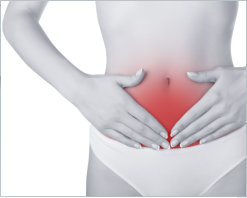[Home] [Irritable Bowel Syndrome] [Diarrhoea] [Digestive Disorders] [Coeliac Disease] [Colon Cleansing] [Constipation] [Digestive Health] [Bowel Problems] [Bad breath] [Candida albicans]





Candida albicans
Candida albicans (also called a thrush, yeast or fungal infection) is a single cell, plant-like fungi that belongs to the vegetable
kingdom. It begins life as a yeast, which everybody has in their digestive tract and other mucous membranes from birth.
With regards to the medical condition, Candida is an overgrowth of yeast (known as Candidiasis) that sometimes begins inside the
gastrointestinal (GI) tract and then, over time, spreads to other parts of the body.
You may well be shocked to find out that documented cases of Candida overgrowth date back as far as the 1700s. Hippocrates
observed the presence of yeast infections as thrush in debilitated patients.
It is a tough and invasive parasite, which generally binds itself to the intestinal wall and might (if not attended to) become a full
time resident of the internal organs.
Do we know the causes of Candida albicans?
When all is well, this yeast is kept in balance by the friendly bacteria (probiotics) that we have in our bodies and, more specifically,
in our GI tract. Therefore, Candida normally co-exists with lots of other sorts of bacteria, in a condition of harmonious balance.
For example, Candida albicans is part of the normal flora of the mucous membranes of the female genital areas, gastrointestinal and
respiratory tracts, which causes no disease. In spite of this, overgrowth of this kind may be the trigger of superficial infections which
may include thrush (oropharyngeal candidiasis) and vaginal Candidiasis (vulvovaginal candidiasis).
The fact is that the modern diet and atmosphere are not often conducive to healthy bacterial growth. We are subjected to an ever-
growing amount of toxic elements and processed foods everyday, and also pollution and chemicals in the air we inhale and the
water we drink.
It is widely thought that overgrowth of yeast is more likely to develop in those with damaged immune systems or those whose levels
of friendly bacteria have been decreased as a result of some external factor (e.g. through stress, illness (such as diabetes),
pregnancy and/or the use of antibiotics, birth control pills or steroids).
If the body’s defences are fragile, it provides fungus with the best possible conditions to thrive. This enables Candida to go into the
bloodstream, moving around through the entire body to colonise areas such as the urinary tract, vagina, tissue, nails, mouth, skin
and other bodily organs.
After such overgrowth has begun, if not clinically determined and treated appropriately and promptly, it can cause a unremitting and
systemic problem - it's widely held that high numbers of yeast germs can weaken the immune system even more, and in so doing
worsen the situation.
Candida albicans can create around 75 toxic substances that can pollute the human body. These toxic compounds are thought to
contaminate tissue and damage the immune system, glands, kidneys, bladder, lungs, liver, brain and nervous system.
Exactly what are the symptoms of Candida albicans?
Overgrowth of Candida can result in quite a few unpleasant symptoms, such as:
•
lower energy
•
bad breath (halitosis)
•
sugar cravings
•
brain fog
•
hypersensitivity
•
fuzzy vision
•
melancholy
•
digestive system problems
•
joint pain
•
muscle ache
•
chronic diarrhoea
•
yeast vaginitis
•
bladder infections
•
menstrual problems
•
and constipation.
A Candida albicans diet
It's widely considered by complementary and alternative medicine and other health practitioners that people dealing with Candida
albicans can possibly benefit from doing away with particular foods from their diet, reinstating gut health and modifying their
lifestyle.
A little yeast is always present in our GI system, but (as outlined above) its expansion is generally kept in check by way of the
balance of good and bad bacteria in the gut. This is believed to be aided by a diet which helps to keep correct acid/alkaline
characteristics.
A diet dominated by high sugar intake (which the yeast calls for to maintain its presence) and foodstuffs made up of yeasts or fungi
(such as mushrooms, cheese and milk) can result in a disturbance of this fragile balance.
*Before changing your eating habits or taking health supplements, always be sure to consult your physician or qualified health
practitioner (particularly if you are pregnant, breastfeeding or on medications).

Diarrhoea and other digestive health problems




